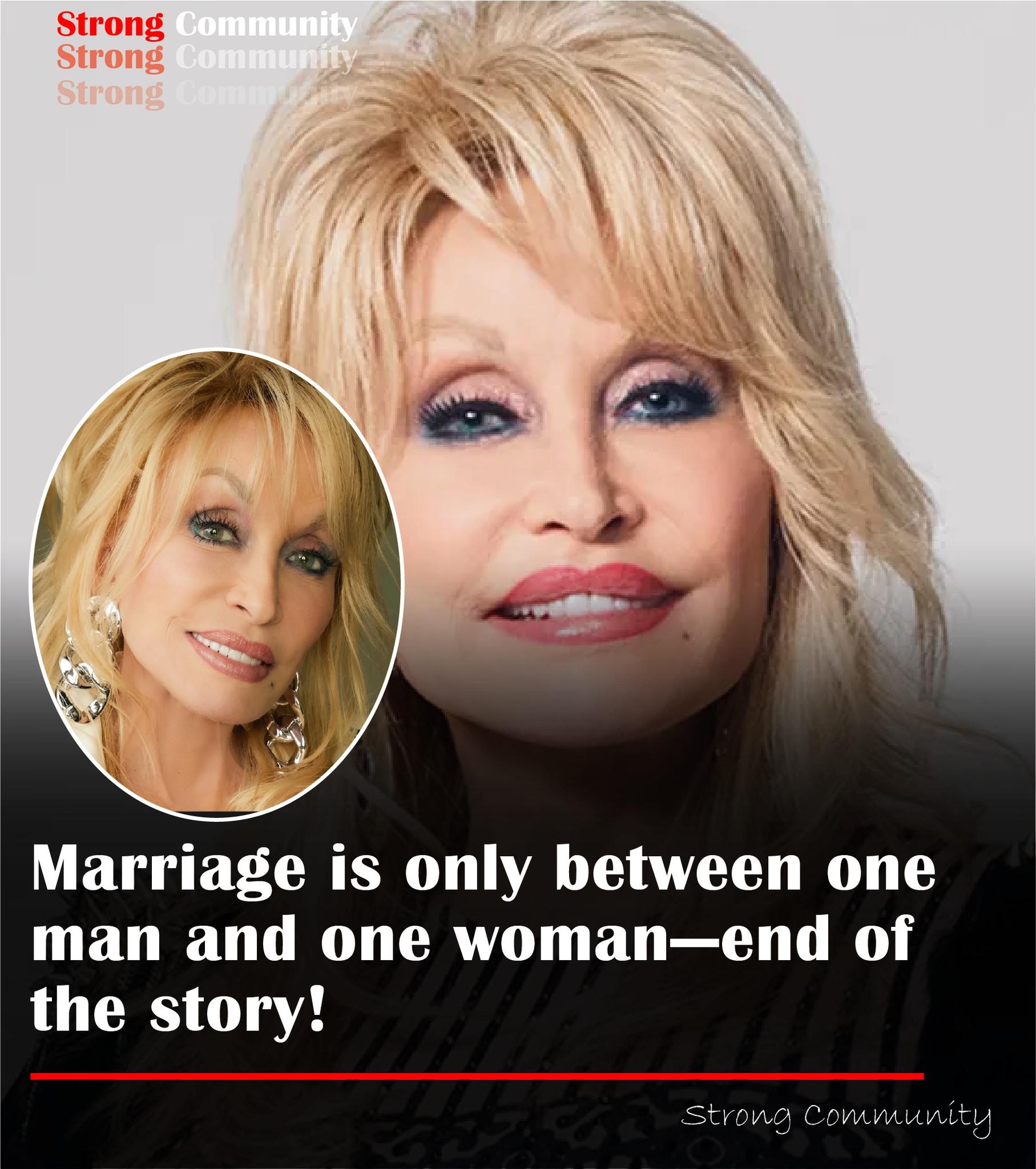The institution of marriage has long been considered a cornerstone of society, with its roots deeply embedded in cultural, religious, and legal traditions. Historically, marriage has been defined as a union between one man and one woman, a concept that has been central to most societies around the world for centuries. However, in recent years, this traditional view has come under increasing scrutiny as discussions surrounding same-sex marriage and LGBTQ+ rights have gained momentum. Despite these shifts, many people still firmly believe that marriage should remain between one man and one woman, viewing this definition as a fundamental and unchangeable truth. For those who hold this belief, the idea of redefining marriage to include same-sex couples is seen as an affront to both tradition and moral values.

The belief that marriage is solely a union between a man and a woman is rooted in both religious and cultural norms. In many religious traditions, including Christianity, Judaism, and Islam, marriage is seen as a sacred bond ordained by God. According to these faiths, the marriage between a man and a woman is not only a civil contract but also a divine institution meant to promote the flourishing of families and society as a whole. For adherents of these religions, altering the definition of marriage would be akin to undermining the fundamental values on which their faiths are based.
Culturally, the concept of marriage as a union between a man and a woman has been reinforced for centuries through social norms, legal structures, and traditions passed down through generations. In many societies, marriage is not just an individual commitment, but a social contract that has long been tied to the continuation of family lines, the raising of children, and the maintenance of social order. The idea that marriage is inherently heterosexual is so ingrained in many cultures that the notion of same-sex marriage often seems foreign or even unthinkable to those who are committed to upholding traditional values.
For those who argue that marriage should remain between one man and one woman, the issue is not just about legal recognition or rights; it is about preserving what they perceive to be the natural and moral order of society. They argue that marriage, as it has traditionally been understood, is the best structure for raising children and providing a stable foundation for families. In their view, the union between a man and a woman provides children with the opportunity to experience both male and female role models, which is seen as essential for their development. The idea that a child can thrive in a same-sex household is seen as controversial, with critics arguing that it deprives children of one of the most fundamental aspects of family life—having both a mother and a father.
For many who hold these views, the definition of marriage is not just a matter of personal preference, but a deeply held belief in the preservation of social and moral values. To redefine marriage to include same-sex couples, in their opinion, would not only disrupt the traditional family structure but also erode the moral fabric of society. The belief that marriage should be exclusively between one man and one woman is often seen as a fundamental truth that should not be compromised or altered to accommodate changing social norms. For these individuals, the matter is non-negotiable, and the argument is clear: marriage is only between one man and one woman—end of the story.
The legal recognition of same-sex marriage has become a contentious issue in many countries around the world, particularly in the United States. For decades, same-sex couples were denied the right to marry, with many states passing laws and constitutional amendments explicitly banning such unions. However, in 2015, the U.S. Supreme Court’s landmark decision in Obergefell v. Hodges legalized same-sex marriage nationwide, declaring that the right to marry is a fundamental right that cannot be denied based on sexual orientation. This ruling was celebrated by many as a victory for LGBTQ+ rights and equality, but it was met with strong opposition from those who believe that marriage should remain between one man and one woman.
For opponents of same-sex marriage, the legalization of same-sex unions represents a radical departure from tradition and a direct challenge to religious and cultural beliefs. They argue that the state should not have the authority to redefine marriage, as doing so undermines the moral and social order. Many also believe that legalizing same-sex marriage opens the door to further redefinitions of marriage, such as polygamy or other non-traditional forms of union. In their view, once the institution of marriage is no longer anchored in the union of one man and one woman, it becomes a slippery slope that could ultimately erode the very foundation of society.
Opponents of same-sex marriage also argue that legal recognition of these unions could have far-reaching consequences, particularly in areas such as religious freedom and free speech. They contend that religious institutions and individuals should not be forced to recognize or participate in same-sex marriages if doing so goes against their deeply held beliefs. There are concerns that churches, schools, and other religious organizations could face legal challenges or discrimination if they refuse to provide services related to same-sex marriages, such as officiating ceremonies or providing counseling. For those who view marriage as a religious institution, the prospect of having to accommodate same-sex marriages is seen as a violation of their First Amendment rights to freely practice their faith.

Despite the growing acceptance of same-sex marriage in many parts of the world, there remains a vocal and passionate group of people who continue to hold firm to the belief that marriage is a sacred bond between one man and one woman. For these individuals, the fight to preserve traditional marriage is about more than just legal recognition—it is about defending values that have been passed down through generations. While society continues to evolve and change, this group remains steadfast in their conviction that marriage, in its purest form, is only between one man and one woman—end of the story.
In conclusion, the debate over the definition of marriage is one that continues to divide people across the globe. For those who believe that marriage is only between one man and one woman, the issue is not just about legal rights or societal trends, but about upholding deeply held values and traditions. While the fight for same-sex marriage has resulted in significant legal and social changes, the belief in traditional marriage remains a central issue for many people, who continue to advocate for the preservation of what they view as the natural and moral order of society. For them, the definition of marriage is simple: one man, one woman, and no apologies.






